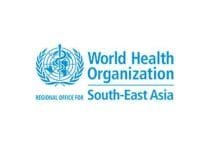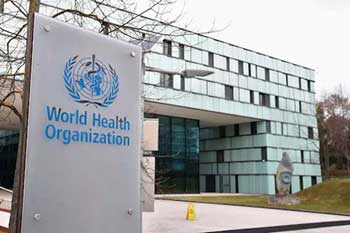 Big 6’ countries of WHO South-East Asia Region meet to close measles’ immunity gap, accelerate elimination efforts
Big 6’ countries of WHO South-East Asia Region meet to close measles’ immunity gap, accelerate elimination efforts
INVC NEWS
New Delhi,
With nearly 4.8 million children in WHO South-East Asia Region missing measles vaccination every year, the ‘big six’ countries of the Region today shared their immunization challenges and lessons learnt for accelerating efforts to eliminate measles and control rubella by the year 2020.
“Eliminating measles would avert half a million deaths, while controlling rubella and Congenital Rubella Syndrome would promote health of pregnant woman and the infants they give life to,” said Dr Poonam Khetrapal Singh, Regional Director for WHO South-East Asia.
Two of the Region’s countries – Bhutan and Maldives – eliminated measles in 2017 while the others are carrying out largescale immunisation drives to achieve the same.
Nearly 500 million children in the Region are planned to be reached with measles and rubella containing vaccines through routine immunisation and supplementary immunisation campaigns in the next two years. Sharing challenges and lessons learnt from various recent achievements and initiatives will help member countries address their unique problems to close the immunity gap against measles, rubella and CRS, she said.
In recent years, WHO South-East Asia Region has made unprecedented progress against vaccine preventable diseases. The Region was certified polio-free in 2014 while maternal and neonatal tetanus was eliminated as a public health problem in 2016.
Last year India and Indonesia targeted 70 million and 35 million children respectively in supplementary measles immunization campaigns. Both have further strengthened routine immunization systems. Bangladesh has implemented an urban immunization strategy, with support of networks of volunteers to broaden immunisation coverage. Myanmar has protected around 14 million children against Japanese encephalitis. Nepal has pioneered an incentive scheme to recognize and celebrate villages and districts that are fully immunized. Thailand has demonstrated to the world the impact surveillance can have via its unique ‘data for action’ model.
Further accelerated and focussed efforts are needed. Nearly 38 million children are born in the Region every year. Of them approximately 87% receive the first dose of measles-containing vaccine. Though this is a marked improvement from previous years, it still means around 4.8 million children are deprived of the most basic protection against measles each year.
With majority of the missed children being accounted for by the ‘big six’ countries, immunisation programme managers of Bangladesh, India, Indonesia, Myanmar, Nepal and Thailand, along with partners WHO, UNICEF, GAVI, Bill and Melinda Gates Foundation and CDC, are deliberating challenges, experiences and lessons learnt in immunization in the Region that can be harnessed to eliminate measles and control rubella / CRS.
“This dynamism and positive exchange is at the very core of south-south and triangular cooperation,” said Dr Khetrapal Singh, who announced measles elimination and rubella / CRS control as one of her flagship programme at the start of her tenure in 2014.
Since then all member countries in South-East Asia region have introduced two doses of measles-containing vaccines in their childhood immunisation programme. Five of them have achieved 95% coverage with both doses.
Measles elimination and rubella /CRS control strategies include ensuring over 95% coverage with two doses of measles and rubella containing vaccine in each district through routine and/or supplementary immunization activities, and developing and sustaining sensitive measles surveillance supported by an accredited measles laboratory network.
Eliminating measles and controlling rubella would also mean extending the benefits of vaccine to all people everywhere, including communities in hard-to-reach or remote areas, the underserved or the neglected or marginalized; and advancing universal health coverage.















